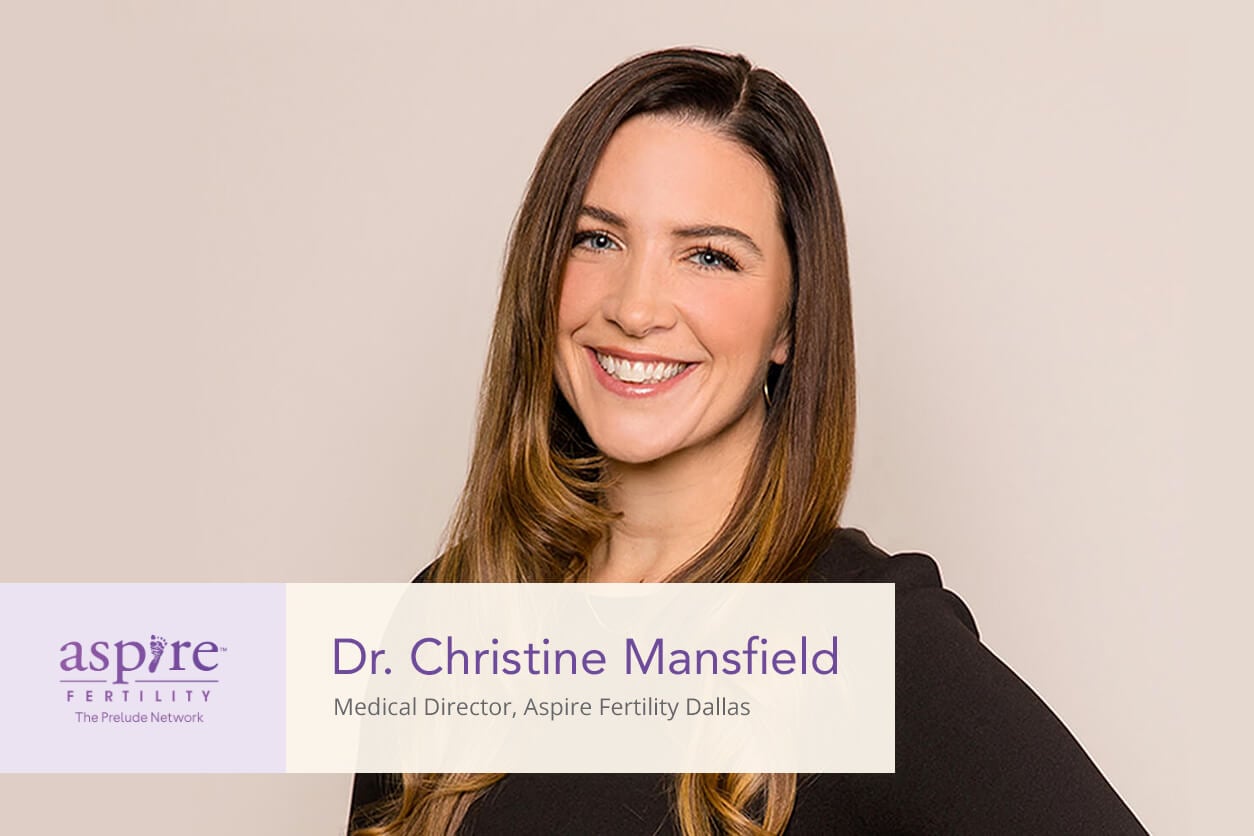Questions to ask your OB/GYN About Your Fertility

Talk to your provider and be informed about age and fertility, fertility testing and egg freezing options.
September was PCOS Awareness Month. According to Resolve: The National Infertility Association, Polycystic ovary syndrome (PCOS) is a common cause of infertility among women and causes about 30 out of every 100 cases of female infertility. It is also one of the most underdiagnosed diseases in the United States.
Other conditions impacting a woman’s reproductive health, such as Endometriosis, frequently are either misdiagnosed, or have a delay in diagnosis and treatment.
This is why, even if you’re not ready to start a family THIS second, talking to your OB/GYN about your fertility and the infamous biological clock is a smart thing to do at any stage of the game. Here are some questions you should ask and why to be proactive about your reproductive health:
Is there a correlation between age and fertility?
While on the surface, this may seem like a scary question (especially depending on what age you are!) it’s important to know how age can impact your egg quantity and quality in terms of conceiving down the road. Your provider can provide an overview on your specific age and walk you through your options in terms of either “having more time” or whether consideration of freezing your eggs is something that you’re interested in exploring.
What is roughly an ideal age range to consider preserving your eggs and what is the process?
If you are interested in pursuing egg freezing, your provider can give you a basic age range of a good time to freeze, ideally before your mid-thirties. You and your provider can discuss how retrieving eggs is performed, the freezing process, and then later expected success rate with thawing the eggs when you’re ready to start a family.
Can I get an initial fertility testing?
No matter your age, fertility testing is a good idea. Some providers may tell you it’s not necessary if you’re considered young or you’re not ready to have children yet, but as they say, knowledge is power! It’s better to know for sure exactly where your fertility health is at and getting the necessary testing such as simple blood work and an ultrasound can provide invaluable insight.
Can you review my Follicle-Stimulating, Anti-Mullerian Hormone and results of my transvaginal sonogram with me?
Your Follicle-Stimulating Hormone (FSH) and Anti-Mullerian Hormone (AMH) hormone levels will help indicate how many follicles/eggs that you have in your ovary reserve. The ultrasound looks at a few things: the number of follicles you have on your ovaries, which correlates with the number of resting eggs in your ovarian reserve, and it will look at your uterus to see if there are any major anatomic problems such as polyps, fibroids, or cysts. The blood work, ultrasound, and a review of any health issues or family history can give your provider an overview of your fertility health.
Are there general things I could be doing now that would help take care of my fertility health?
Health issues such as polycystic ovary syndrome, endometriosis, and uterine fibroids can affect a woman's chances of getting pregnant or successfully carrying a pregnancy to term. If you or your provider suspect or know you may have issues with any of these problems now, treatment of these conditions ahead of time may help. There are also preventable factors to improve fertility health like smoking cessation and weight loss if needed. Smoking causes up to 13% of all infertility cases, according to the American Society for Reproductive Medicine.
What symptoms should I tell my OB/GYN about?
This is a complicated question because really, if there’s anything you’re experiencing that’s causing you concern, you should feel comfortable mentioning it or asking about it. Some general red flags are:
- Bleeding in between menstrual cycles
- Irregular periods or no periods at all
- Extremely painful menstrual cramps (over-the-counter medication doesn’t seem to help)
- Sexual intercouse feels painful or uncomfortable
- Excessively heavy periods
- Any significant fatigue, diarrhea, constipation, bloating or nausea, especially during menstrual periods
If you are actively trying to conceive there are guidelines to be aware of in terms of seeing a fertility provider instead of your OB/GYN. If you are under the age of 35 and have been trying to conceive for a year without success OR if you are over the age of 35 and have been trying for at least six months without achieving a pregnancy,it is recommended to schedule a fertility consultation with a Reproductive Endocrinologist (RE). Anyone past age 40 attempting to conceive should consider consultation with a RE. He or she can discuss if there’s a concern they can address or if the use of reproductive technology may be needed in order to expand your family.
Overall, reviewing your general health and how it may impact your fertility or successfully carrying pregnancy down the road can help you prepare and take action if needed.
Being proactive about your fertility health is something that the future you will thank you for- so start asking questions now!
To learn more or to schedule an appointment with one of our physicians to discuss your reproductive health please go to www.aspirefertilty.com or call us at (214) 771-9252.


















